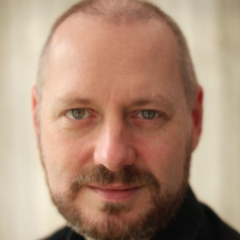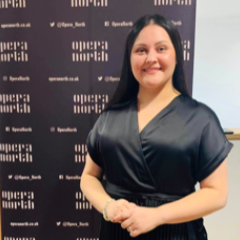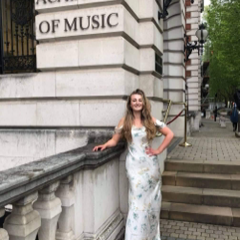What is opera singing?
Opera singing is a sophisticated form of vocal performance that combines music, drama, visual arts, and sometimes dance to convey stories and emotions. Originating in Italy in the late 16th century, opera quickly spread throughout Europe and became a beloved genre. In opera, singers perform arias, recitatives, and choruses, often accompanied by an orchestra. The art form demands not only vocal prowess but also acting skills as performers embody characters and engage with audiences through expressive singing and dramatic gestures. Opera singers are trained to project their voices over large orchestras and across theatres without the aid of amplification, relying on techniques like breath control, resonance, and precise diction. Popular opera composers include Mozart, Verdi, and Puccini, whose works continue to be performed worldwide. To become an accomplished opera singer, one must undergo rigorous training in vocal technique, language, and music theory, as well as gain stage experience.
How do I become an opera singer in the United Kingdom?
Becoming an opera singer in the United Kingdom involves several steps, beginning with comprehensive vocal training. Aspiring singers typically start by taking lessons with a qualified opera singing tutor who can guide them in developing proper vocal techniques, including breath control, resonance, and pitch accuracy. Many choose to pursue formal education at a conservatoire or university, such as the Royal Academy of Music in London, which offers specialised programmes in vocal studies. These institutions provide opportunities to learn about music theory, language diction, and performance skills. Participation in workshops, masterclasses, and local opera productions is invaluable for gaining stage experience and building a professional network. It's also beneficial to attend opera performances, particularly those in renowned venues like the Royal Opera House in Covent Garden, to observe and learn from established artists. Aspiring singers should be prepared to audition regularly for roles and competitions, as practical experience is crucial for career advancement. Persistence, dedication, and a passion for the art form are essential qualities for succeeding in the competitive world of opera singing.
What are some famous opera venues in the United Kingdom?
The United Kingdom is home to several prestigious opera venues that host performances by world-renowned artists and companies. The Royal Opera House in Covent Garden, London, is perhaps the most famous, known for its opulent architecture and exceptional productions of both traditional and contemporary operas. It serves as the home of The Royal Opera, one of the world's leading opera companies. Another notable venue is the English National Opera, based at the London Coliseum, which is celebrated for its innovative and accessible productions performed in English. Additionally, the Glyndebourne Opera House in East Sussex offers a unique experience, with its annual summer festival attracting opera enthusiasts from around the globe. In the north, the Opera North company performs at the Leeds Grand Theatre, providing high-quality productions to audiences in Yorkshire and beyond. These venues not only showcase the rich tradition of opera but also support the development of new talent and works, contributing significantly to the UK's cultural landscape.
How can online opera singing lessons benefit students?
Online opera singing lessons offer numerous benefits to students, providing flexibility and access to high-quality instruction regardless of geographic location. Students can connect with skilled tutors from across the UK, such as those listed with TutorExtra, who offer personalised lessons tailored to individual needs and goals. Online lessons allow learners to schedule sessions at convenient times, accommodating busy lifestyles and varying time zones. This format often includes interactive tools and resources, such as video demonstrations and digital sheet music, enhancing the learning experience. Moreover, students can record lessons for future reference, enabling them to review techniques and advice at their own pace. Online platforms also provide opportunities for students to participate in virtual masterclasses and workshops, broadening their exposure to different styles and teaching methods. By taking advantage of online opera singing lessons, students can develop their vocal skills, boost their confidence, and expand their musical repertoire, all while enjoying the convenience of learning from home.
What role does language play in opera singing?
Language plays a crucial role in opera singing, as it is essential for conveying the story and emotions of the performance. Opera singers are often required to sing in multiple languages, such as Italian, French, German, and English, each with its own unique phonetic and stylistic characteristics. Understanding the nuances of these languages enables singers to deliver authentic and expressive performances. Many opera vocalists undertake extensive language training to master diction, pronunciation, and interpretation, ensuring clarity and accuracy in their singing. This training often includes studying the cultural and historical contexts of the operas they perform, which enriches their understanding and portrayal of characters. In addition to linguistic skills, singers must develop the ability to convey meaning through vocal inflection and expression, as opera relies heavily on the combination of music and text to tell a compelling story. Mastery of language in opera singing not only enhances the quality of the performance but also deepens the connection between the singer and the audience, allowing for a more immersive and impactful experience.
What are the benefits of learning opera singing for young people in Newark, England?
For young people in Newark, England, learning opera singing can offer a wide range of benefits that extend beyond musical education. Engaging in opera singing helps build self-confidence, as students develop the ability to perform in front of audiences and express themselves through music and drama. This art form also enhances cognitive skills, such as memory and concentration, as it requires the memorisation of complex pieces and the ability to focus on multiple elements simultaneously. Additionally, opera singing promotes physical health by improving lung capacity and breath control, which are essential for producing sustained and powerful vocal sounds. Participating in local opera productions or joining choirs and music groups in Newark provides young singers with opportunities to collaborate with peers, fostering teamwork and communication skills. Furthermore, exposure to the rich cultural heritage of opera can inspire creativity and a lifelong appreciation for the arts. For those considering a career in music, Newark offers access to experienced tutors like Colin Reed, who provide expert guidance and support to help young singers realise their full potential.














